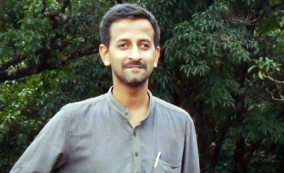| Course Status : | Ongoing |
| Course Type : | Elective |
| Language for course content : | English |
| Duration : | 8 weeks |
| Category : |
|
| Credit Points : | 2 |
| Level : | Undergraduate/Postgraduate |
| Start Date : | 20 Jan 2025 |
| End Date : | 14 Mar 2025 |
| Enrollment Ends : | 03 Feb 2025 |
| Exam Registration Ends : | 14 Feb 2025 |
| Exam Date : | 23 Mar 2025 IST |
Note: This exam date is subject to change based on seat availability. You can check final exam date on your hall ticket.

DOWNLOAD APP
FOLLOW US